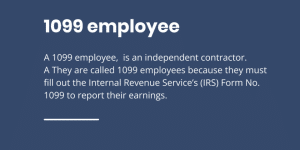Updated November 13, 2025
Understanding California Labor Code 2699
California Labor Code Section 2699, often referred to as the Private Attorneys General Act (PAGA), empowers employees to take legal action against employers for violations of the state’s labor laws. This legislation was enacted to enhance the enforcement of labor rights and ensure that employees can seek justice when their rights are infringed upon. In this article, we will explore the key aspects of California Labor Code 2699, including its provisions, common violations, penalties, and the process for employees to file claims.
Overview of California Labor Code Section 2699
California Labor Code 2699 allows employees to act as private attorneys general, enabling them to file lawsuits against employers for specific violations of the Labor Code. This law is significant because it provides employees with a mechanism to hold employers accountable for non-compliance with labor regulations, which can include issues related to wages, working conditions, and employee rights.
Key Provisions of PAGA
Civil Penalties: Under PAGA, civil penalties can be imposed on employers for violations of the Labor Code. These penalties are typically set at $100 per employee for the first violation and $200 for subsequent violations per pay period.
Distribution of Penalties: When penalties are awarded, 75% of the collected amount goes to the California Labor and Workforce Development Agency, while the remaining 25% is distributed to the aggrieved employees.
Aggrieved Employees: The term "aggrieved employee" refers to any individual who has been employed by the alleged violator and has personally suffered from the violations claimed. This definition is crucial as it establishes who has the standing to file a lawsuit under PAGA.
Common Violations Under PAGA
PAGA covers a wide range of labor law violations. Some of the most common issues that lead to PAGA claims include:
- Overtime Violations: Employers failing to pay employees for overtime hours worked.
- Meal and Rest Break Violations: Denying employees their legally mandated meal and rest breaks.
- Minimum Wage Violations: Paying employees less than the state-mandated minimum wage.
- Failure to Reimburse Business Expenses: Not reimbursing employees for necessary business-related expenses incurred during their employment.
- Misclassification of Employees: Incorrectly classifying employees as independent contractors to avoid providing benefits and protections.
These violations can significantly impact employees’ livelihoods, making it essential for them to understand their rights under PAGA.
Penalties for Violations
The penalties associated with PAGA violations can be substantial. Here’s a breakdown of the potential penalties:
Meal and Rest Break Violations: Employers may face penalties of up to one hour of pay at the employee’s regular rate for each missed meal or rest break.
Overtime Violations: Similar to meal break violations, penalties can reach up to one hour of pay for each overtime hour worked without proper compensation.
Misclassification Penalties: For misclassification, penalties can be as high as $250 per employee per pay period for the first violation and $1,000 for subsequent violations.
These penalties serve as a deterrent against non-compliance and encourage employers to adhere to labor laws.
The Process of Filing a PAGA Claim
Filing a claim under PAGA involves several steps. Understanding this process is crucial for employees seeking to enforce their rights.
Step 1: Notice Requirement
Before filing a lawsuit, employees must provide written notice to the employer and the Labor and Workforce Development Agency. This notice must specify the alleged violations and allow the employer a chance to rectify the issues within a specified timeframe.
Step 2: Waiting Period
After the notice is sent, there is a waiting period of 65 days. During this time, the employer has the opportunity to address the violations. If the employer fails to resolve the issues, the employee can proceed with filing a lawsuit.
Step 3: Filing the Lawsuit
Once the waiting period has elapsed, the employee can file a civil action in court. It is advisable to seek legal representation during this process to ensure that the claim is properly articulated and supported by evidence.
Costs and Attorney’s Fees
One of the significant advantages of PAGA is that employees who prevail in their claims are entitled to recover reasonable attorney’s fees and costs. This provision is mandatory, meaning that courts are required to award these fees to successful plaintiffs. This aspect of PAGA encourages employees to pursue their claims without the fear of incurring substantial legal costs.
The Role of Legal Representation
Navigating the complexities of labor law can be challenging, especially for employees who may not be familiar with their rights. Engaging a qualified employment attorney can provide several benefits:
- Expert Guidance: An attorney can help employees understand their rights under PAGA and the specific violations that may apply to their situation.
- Effective Representation: Legal representation ensures that claims are filed correctly and that all necessary documentation is submitted.
- Negotiation Skills: Attorneys can negotiate on behalf of employees to achieve favorable settlements without the need for prolonged litigation.
If you believe your rights have been violated under California Labor Code 2699, it is crucial to consult with an experienced employment lawyer who can guide you through the process.
Conclusion
California Labor Code 2699 serves as a powerful tool for employees to enforce their rights and hold employers accountable for labor law violations. By understanding the provisions of PAGA, common violations, penalties, and the process for filing claims, employees can better protect themselves in the workplace. If you find yourself facing issues related to labor law violations, do not hesitate to seek legal assistance to ensure your rights are upheld.
Need a Lawyer?
Setyan Law is your trusted partner in employment law matters, ensuring your rights are protected in class action disputes. Call us today at 213-618-3655 for a free consultation.






